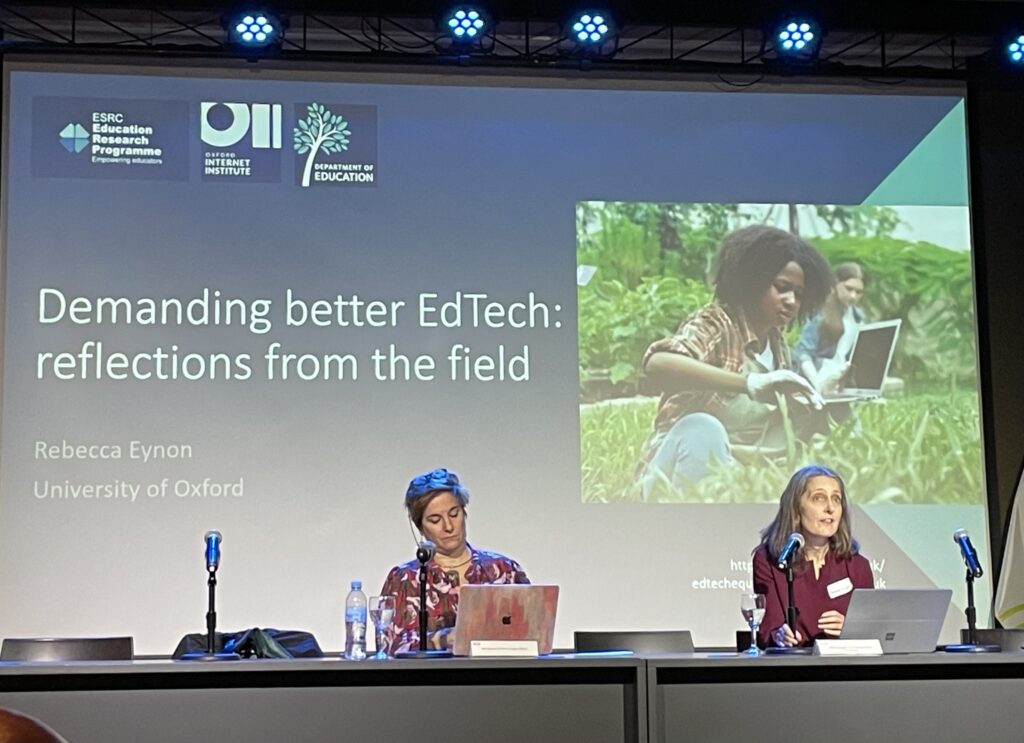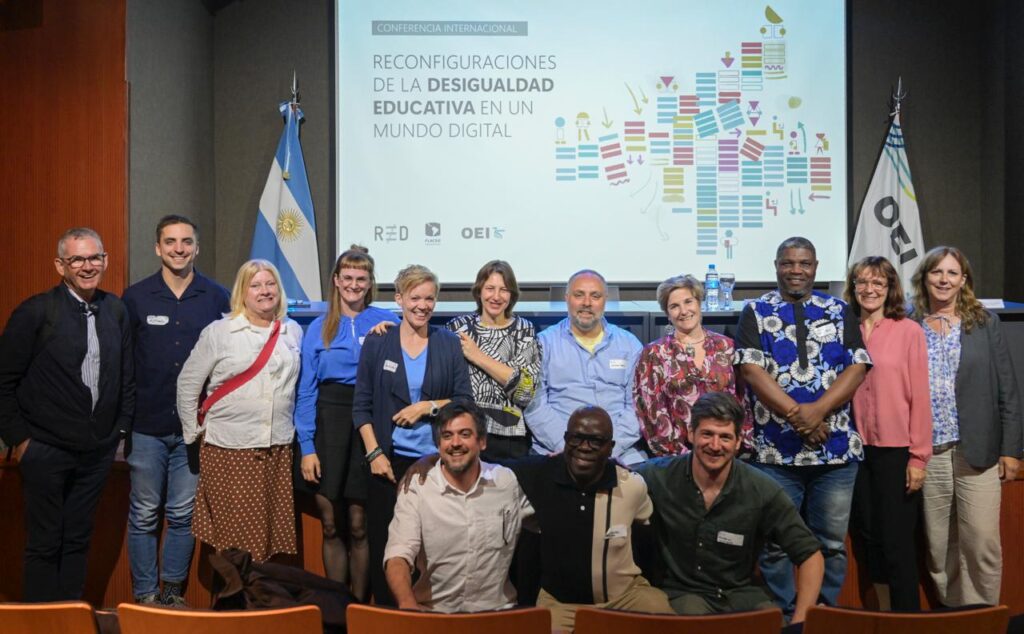On 26 September 2024, the Facultad Latinoamericana de Ciencias Sociales SEDE ARGENTINA (FLACSO)and the RED team co-hosted the conference Reconfiguraciones de la Desigualdad Educativa en un Mundo Digital (Reconfigurations of Educational In/ Equalities in a Digital World). It was held at the Organization of Ibero-American States for Education, Science and Culture (OEI) in the City of Buenos Aires, Argentina. At this conference scholars and educators from different countries and disciplines, from the Global South and the Global North, drew on a wide range of perspectives to discuss educational in/equality in a digital world.
The conference was opened by Patricia Ferrante (RED/FLACSO, Argentina), Lydia Heidrich (RED/UOL, Germany), Luis Scazzo (OEI, Argentina), Valentina Delich (FLACSO, Argentina), and Felicitas Macgilchrist (RED/UOL, Germany).
Rebecca Eynon (University of Oxford, UK) then gave the first keynote on Demanding better EdTech – Reflections from the field, which Inés Dussel (RED/DIE-Cinvestav, Mexico) chaired and commented on. Eynon based her presentation on ethnographic research conducted in UK education and raised concerns about how digital software is not always sufficiently nuanced and often neglects to account for students’ “informed guesswork” and their questions. She raised the issue of the importance of demanding better products from the commercial sector, questioning the narrative of efficiency and bringing questions on the purpose of schooling to the agenda. In this way, educational experts can reclaim responsibility for education from the EdTech sector.

Gabriel Kessler (CONICET/UNSAM, Argentina), Paul Prinsloo (RED/UNISA, South Africa), and Alejandro Artopoulos (UDESA, Argentina) discussed Inequalities and Platformization: Dilemmas in Digital Education in the first panel, chaired by Cora Steinberg (UNICEF). They raised issues on, for example, to what extent platforms change curriculum, pedagogy, and assessments, and how much learning nowadays is possible outside of platforms. The questions could definitely be food for further thought.
After lunch, Annika Bergviken Rensfeldt (RED/GU, Sweden) hosted the next panel on Pedagogies in/of Connected Schools. Ethnographies of Practices, where Felicitas Macgilchrist (RED/UOL, Germany), Soledad Vercellino (Universidad Nacional de Rio Negro, Argentina), and Rosalia Winocur (UdelaR, Uruguay) shared reflections from ethnographic fieldwork around the world with examples from Uruguay, Argentina, and Germany. Their empirical work showed that access does not automatically mean inclusion.
A panel on Platforms and Datafication: Are there Alternatives to the Corporate World? was hosted by Adriana Robles (RED/DIE-Cinvestav, Mexico). Thomas Hillman (RED/GU, Sweden), Patrico Lorente (UNLP, Argentina), and Lila Pagola (Universidad Nacional de Villa Maria, Argentina) discussed the influence of digital platform providers in the education sector in different world regions and how to understand their impact with regard to datafication.

The last keynote was held by Orit Halpern (TUD, Germany) and discussed by Flavia Costa (CONICET/UNSAM, Argentina). In her research, Halpern engages in histories of science, computing, cybernetics, and design. The keynote focused on digitalization and subjectification, where Halpern discussed big data and its, sometimes, unrealistic impact on societal questions.
One reflection from the all-day program was how well the arrangement worked. The bilingual structure, in which Spanish and English speakers could meet, worked surprisingly well due to the simultaneous interpretation provided. The Global South and the Global North definitely share common interests and can benefit from each other’s perspectives. Let us hope that this conference was one of many more to come.
A special thanks to Patricia Ferrante (RED/FLACSO, Argentina), Lydia Heidrich (RED/UOL, Germany), RiksbankensJubileumsfond (RJ), and everyone in the background at FLACSO, OEI, and RED that made this conference possible.
Christina Löfving, RED
